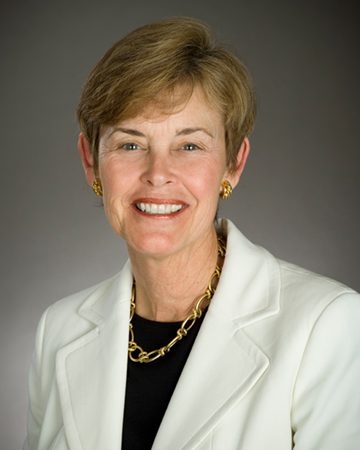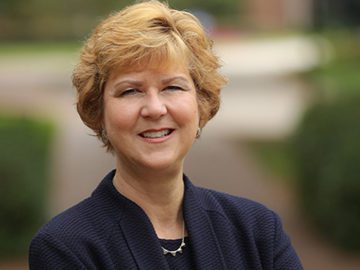Q&A with Minor Mickel Shaw

Minor Mickel Shaw, chair of The Duke Endowment / courtesy photo
In the fall of 2019, President Elizabeth Davis and Minor Mickel Shaw, chair of The Duke Endowment, convened 21 women to discuss how women as leaders and philanthropists can uniquely impact Furman’s trajectory. Despite the challenges of COVID-19, this group doubled its membership within six months and became known as FurmanWIN in early 2021. What follows is a conversation between FurmanWIN’s staff liaison, Tricia Carswell, and Minor Shaw, its volunteer champion.
Minor, why did you decide to help start FurmanWIN?
Given my role within The Duke Endowment, I’ve had a unique opportunity to understand Furman’s strengths and goals. When I learned that Furman would organize differently to engage its female constituency in developing meaningful relationships with one another and the university, I jumped at the chance to be involved. Furman’s history is marked by women who engaged in perpetuating Furman’s impact. My own mother, Minor Mickel, served as Furman’s first female chairperson of its Board of Trustees. However, Furman recognizes that there has not been a consistent approach to involving women in leadership through the years and is making the necessary changes. Under the leadership of Elizabeth Davis, Furman now shares the national stage with a select group of universities discovering the unique ways in which women lead.
What do you think FurmanWIN’s efforts will yield in the years ahead?
FurmanWIN’s crystal ball is predictively quite clear. Faculty, staff and volunteers are methodically building
a groundswell of thought leadership and engagement to propel FurmanWIN into perpetuity. Women across the country are participating in focus group-type gatherings to offer insight into how they might support Furman through meaningful events and activities. They are telling us what they care about and how they want to be involved. We are very close to launching virtual and in-person programming to benefit Furman women no matter where they live and work. Our crystal ball pictures generations of mothers, daughters, sisters and friends who rally for Furman.
Are other universities engaged in focused engagement of women?
FurmanWIN partners with 30+ other universities focusing on the same results. We all share best practices while developing strategies that align with the uniqueness of our own institutions.
Like Furman, they all understand that a connected community of powerful women, representative of the Furman alumnae base, who are invested in advancing the university, opens a world of possibilities for other alumnae and students.
As you know, Minor, when women engage and lead, especially in not-for-profit work, they often lead with philanthropy. What have you learned about how Furman women give?
Furman women are philanthropic decision makers and often give more than men, especially when they connect with one another to tackle an issue. Progression on their leadership and philanthropic path is often different than men’s. There are always exceptions, but research shows that if they are asked to lead, women come forward faster! And, Furman women enjoy working with Furman men who share their commitment. Rest assured … FurmanWIN plans to ask!
Join Us. Contact Tricia Carswell at patricia.carswell@furman.edu.



